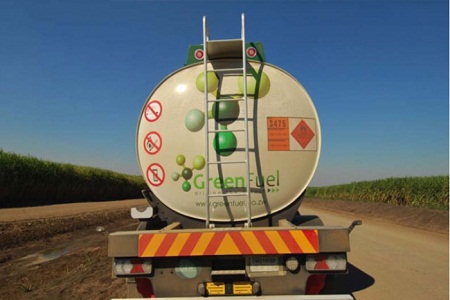Car assembler, Willowvale Mazda Motor Industries (WMMI), says its vehicles are not compatible with E15 fuel blend and does not warranty cars using such fuel should they develop engine or emission system challenges.
This comes at a time when motorists have also expressed concern with the use of mandatory E15 fuel that was recently announced by government.
E15 is a mix of 85 percent gasoline and 15 percent ethanol.
However, government argued that such blending levels were safe and would reduce the country's import bill significantly.
In an interview last week, WMMI managing director Engineer Dawson Mareya said Mazda vehicles that use E15 might result in engine malfunctioning.
"The use of such fuel depends on the engine - whether it is designed for such fuel," he said.
"We cannot give a warranty or guarantee for anything beyond E10 because it can cause engine malfunction."
Eng Mareya said decisions to introduce E15 required extensive consultations with stakeholders in the motor industry.
As car assemblers, he said, they wanted time to communicate with kits manufacturers on change of government policy.
"We do not design cars. We just put a car together so such decisions require proper planning," he said.
Nissan Zimbabwe last year raised the same concern and expressed discomfort over the use of blended fuel beyond E10 levels.
In a letter to the Zimbabwe Energy Regulatory Authority chief executive Engineer Gloria Magombo, Nissan Zimbabwe said their vehicles were designed to take a maximum 10 percent ethanol blended gasolene.
It said if that percentage was to be exceeded, Nissan products would have fuel injection components changed and various rubber components installed into the fuel systems to cater for a higher ethanol blend.
The majority of Zimbabweans use old cars imported from mainly Britain and Asian countries and no independent enquiries have been done to assess the compatibility of some of these old vehicles with these fuel blends.
A car dealer who spoke to our Harare Bureau on condition of anonymity on Friday said the decision to introduce E15 in Zimbabwe was ill-advised and ill-timed.
He said most of the vehicles in the country were not compatible with such higher blends.
"E15 is compatible with modern cars especially those that were manufactured from 2004," said the source.
"If we are to use E15 on all cars, it means there should be some modifications on engines because ethanol is corrosive."
A Harare motorist, Manuel Gadzikwa, said E15 and any other blend above E10 level should be optional.
"It is unfair for government to foist E15 on us," he said.
"In as much as government can argue that E15 is a cost cutting measure that may also result in reduction of fuel prices, it has to be optional. We should be allowed to choose the fuel that we want to use."
However, Eng Magombo of Zera said there was nothing wrong with E15.
She said blended fuel was not a new phenomenon in Zimbabwe as it was used during the Ian Smith regime.
Eng Magombo said the increase in mandatory blending levels was aimed at reducing the fuel import bill.
"We are losing huge sums of money through fuel imports," she said.
"However, the impact on fuel prices cannot be felt now because service stations should first clear their E10 stocks before implementing the new E15 blend level."
Some countries that have long embraced ethanol use have come up with vehicles that are compatible to 100 percent ethanol without modifications.
E15 blending level is being challenged in the courts by a Harare man Thabani Mpofu, who is suing the Energy and Power Development Minister Dzikamai Mavhaire, Zera and Green Fuels.
Mpofu filed a constitutional application challenging Green Fuels' "monopoly and blending ratios" to levels beyond E10.
He argued that compulsory blending effectively bans unleaded fuel in the country.
Mpofu further contends that Green Fuels' monopoly and blending ratios did not guarantee fair competition and were not in the interest of motorists.
He is of the view that mandatory blending infringes on people's rights as enshrined in the Bill of Rights in the Constitution of Zimbabwe.
- chronicle
 Concern over Masvingo black market
Concern over Masvingo black market  Kenya declares three days of mourning for Mugabe
Kenya declares three days of mourning for Mugabe  UK's Boris Johnson quits over Brexit stretegy
UK's Boris Johnson quits over Brexit stretegy  SecZim licences VFEX
SecZim licences VFEX  Zimbabwe abandons debt relief initiative
Zimbabwe abandons debt relief initiative  European Investment Bank warms up to Zimbabwe
European Investment Bank warms up to Zimbabwe  Young Investment Professional (YIP) Graduate Programme 2019
Young Investment Professional (YIP) Graduate Programme 2019 











 Young Investment Professional (YIP) Graduate Programme 2019
Young Investment Professional (YIP) Graduate Programme 2019
Editor's Pick